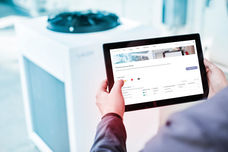BioEquality: Improving the Safety of Gene Technologically Manufactured Biopharmaceuticals
Within the ZIM funded BioEquality project the Frauenhofer Institute SCAI, the A&M STABTEST GmbH and the MassMap GmbH & Co. KG will develop a software for the automated analysis of the quality of biopharmaceuticals and the equivalence of biosimilars.
Since the market release of Humulin (human Insulin) in 1982, gene technologically manufactured proteins as active ingredients in pharmaceutical products have become a reality. But only in the past five years have we seen a rapid increase in the numbers of approvals and hence the market release of Biopharmaceuticals. We are also facing the end of patent protection of the first-generation Biopharmaceuticals, which is opening the market for manufacturers of generic drugs. These so-called Biosimilars must prove that they are equivalent to the Originator before they receive approval for market release.
The International Congress for Harmonisation (ICH) has issued a guideline regarding the analysis of Biopharmaceuticals. The main focus of this guideline concentrates on the continuity of the product quality from early stages of development to the release of production batches into the market.
Pharmaceutical proteins are being increasingly analysed on the bases of their Peptide Mass Maps. Endopeptidases are used to release peptides from the protein in question, which are analysed by LC-MS. This procedure indicates minute changes in the primary structure of the protein. A comparison of Peptide Mass Maps from a reference with the actual product allows to make a comprehensive statement about the possible changes to the product quality. But this comprehensive approach, in which hundreds of mass signals need to be regarded is very time consuming and not in the least practical.
The BioEquality project, funded by the Zentrales Innovationsprogramm Mittelstand (ZIM), focuses on the development of a software solution which will archive the Peptide Mass Map-data and further more perform a comprehensive comparison of these data sets. The BioEquality project will be based on the MassMap software developed by Dr. Wozny (MassMap GmbH & Co. KG) which performs in-depth characterisations of Peptide Mass Map-data. The A&M STABTEST GmbH has well over a century worth of experience in MS-based contract analysis of Biopharmaceuticals and Biosimilars for the pharmaceutical industry. This experience in generating and handling Peptide Mass Map-data will aid the Frauenhofer Institute SCAI (Sankt Augustin) to develop a software solution which will comply with all regulatory demands of the pharmaceutical industry (21 CFR Part 11).
In future the BioEquality software will enable a consistent coverage of Peptide Mass Map-data from early stages of development, over samples from stability testing, to data from production batches for market release. The software will help to find changes in the product caused by, e.g., production scale ups or give a reliable statement about the product quality for market release. Further more, manufacturers of generic Biopharmaceuticals can utilise the software to show the equivalence to the original product.
The newly developed BioEquality software will enable the biopharmaceutical industry to make comprehensive statements about their product quality with in a reasonable amount of time and expenditure.
Most read news
Organizations
Other news from the department science
These products might interest you

Get the analytics and lab tech industry in your inbox
By submitting this form you agree that LUMITOS AG will send you the newsletter(s) selected above by email. Your data will not be passed on to third parties. Your data will be stored and processed in accordance with our data protection regulations. LUMITOS may contact you by email for the purpose of advertising or market and opinion surveys. You can revoke your consent at any time without giving reasons to LUMITOS AG, Ernst-Augustin-Str. 2, 12489 Berlin, Germany or by e-mail at revoke@lumitos.com with effect for the future. In addition, each email contains a link to unsubscribe from the corresponding newsletter.























































